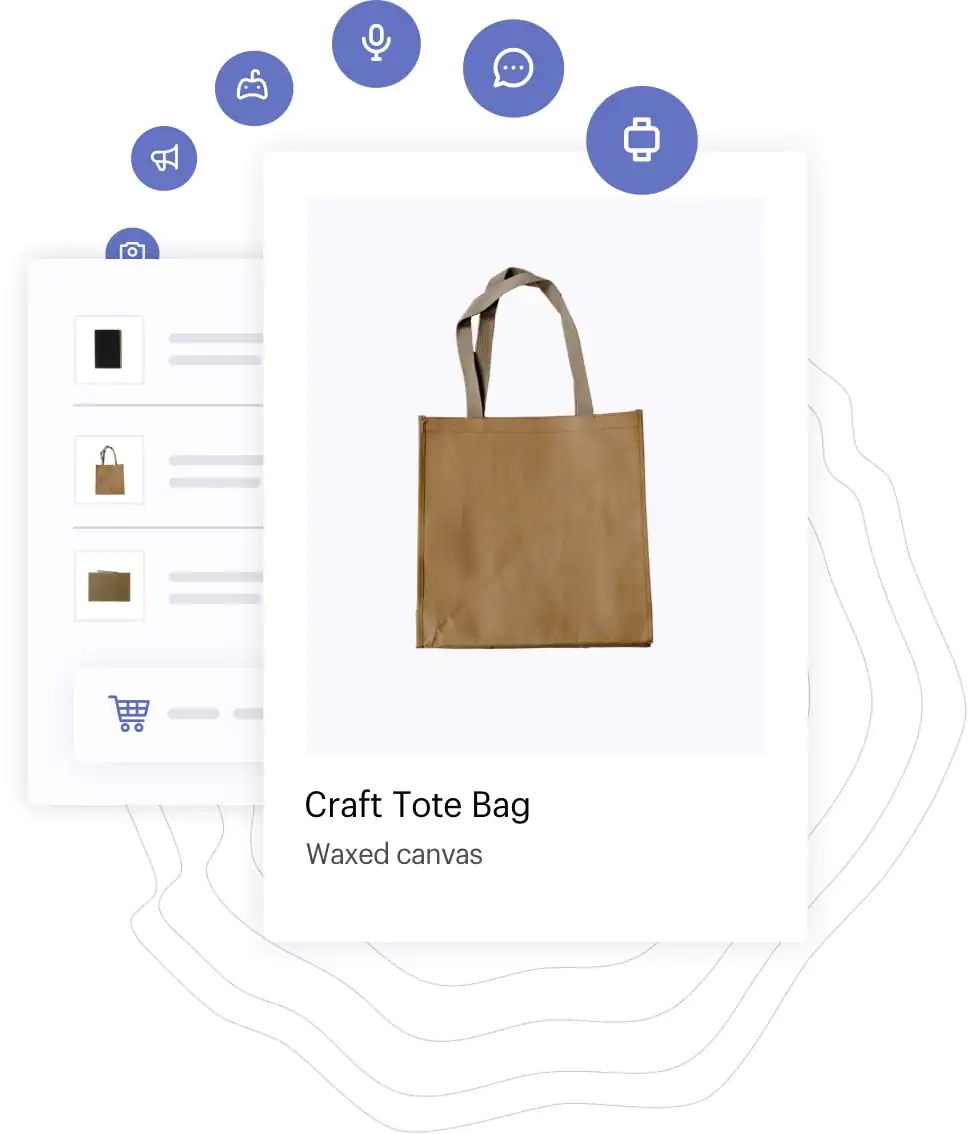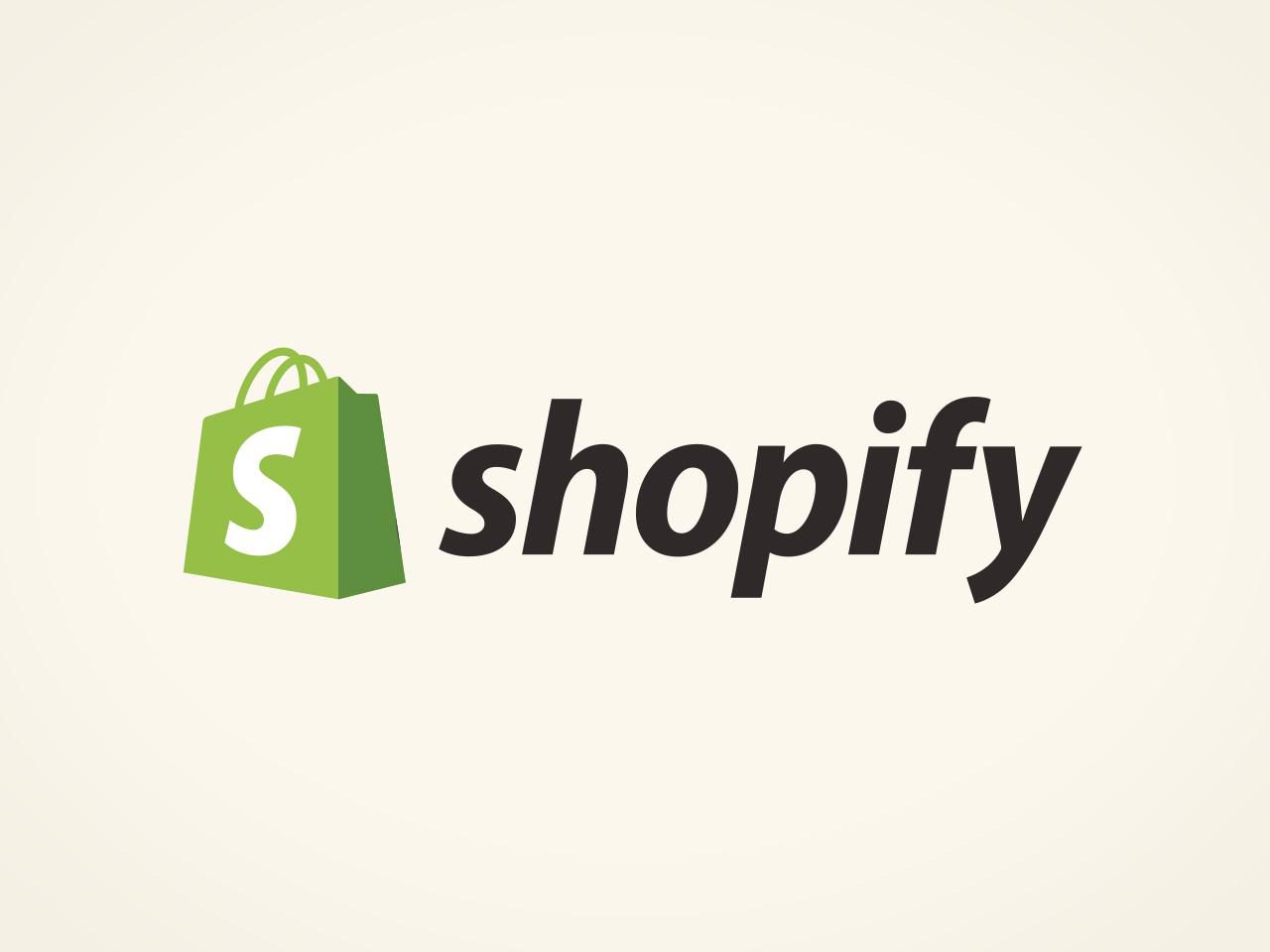What Is Shopify and How Does It Work? – In the ever-evolving landscape of ecommerce, one name consistently stands out—Shopify.
If you’ve ever pondered questions like “What is Shopify?” or “How does Shopify work?”, you’re not alone.
This platform has become synonymous with online shopping, serving as a launchpad for countless entrepreneurs and established businesses alike.
Shopify is more than just a tool; it’s a comprehensive commerce platform that allows you to start, grow, and manage a business.
Whether you’re selling on Shopify for the first time or looking to expand your existing operations, this platform offers a plethora of features tailored to your needs.
From setting up a Shopify online store to managing a range of Shopify products, the platform is designed to make your ecommerce journey as smooth as possible.
Key Features of Shopify:
| Feature | Description |
|---|---|
| Online Store | Customizable templates to create your own ecommerce website |
| Inventory Management | Tools to manage your products and stock levels |
| Payment Processing | Integrated solutions for handling transactions |
| Marketing Tools | SEO, email marketing, and social media integrations |
| Analytics | Comprehensive data to track performance and customer behavior |
| Shopify App Store | A marketplace for third-party apps to extend your store’s capabilities |
So, what does Shopify do that makes it so popular? One of its standout features is its user-friendly interface, which makes it accessible for people with little to no technical background.
What is Shopify used for, you ask? It’s used for creating an online store, managing inventory, processing payments, and much more.
Essentially, it’s a one-stop-shop for all your ecommerce needs.
The platform’s versatility also extends to various business models. Whether you’re running a Shopify business that sells physical goods, digital products, or even subscription services, the platform has you covered.
Shopify is not just a piece of software; it’s a full-fledged commerce ecosystem.
By the end of this article, you’ll have a deep understanding of how Shopify can benefit your online shopping business, from the initial setup to scaling for growth.
Key Takeaways
Show- All-in-One Platform: Shopify offers a comprehensive suite of tools for creating and managing an online store, making it a one-stop solution for ecommerce.
- User-Friendly: With its intuitive interface and customizable templates, Shopify is accessible to users of all skill levels.
- Extensibility: Shopify's App Store and API integrations allow for extensive customization and added functionality, catering to specific business needs.
- Scalability: Shopify can adapt to businesses of all sizes, offering plans and features that can grow with your business.
- Payment and Shipping: Shopify provides a wide range of payment gateways and shipping options, simplifying transactions and delivery.
- Marketing and SEO: Built-in marketing tools and SEO features help drive traffic to your store, facilitating customer acquisition and retention.
- Community and Support: A vibrant community of entrepreneurs and a range of additional resources like Shopify Academy provide valuable support and learning opportunities.
- Analytics and Insights: Real-time analytics and reporting tools offer valuable insights into store performance and customer behavior.
- Mobile Management: Shopify offers mobile solutions for managing your store on the go, making it easier to run your business from anywhere.
- Future-Ready: Regular updates and a commitment to innovation ensure that your Shopify store remains competitive in a rapidly evolving ecommerce landscape.
So, whether you’re a small business owner, a budding entrepreneur, or an established retailer, Shopify offers a range of solutions to help you succeed in the competitive world of online commerce.
Read our comprehensive Shopify Tutorial:
What is Shopify?
Shopify has emerged as a cornerstone in the ecommerce industry, but what exactly is it? At its core,
Shopify is a comprehensive commerce platform designed to facilitate various aspects of online business.
From setting up a digital storefront to managing an intricate inventory of products, Shopify serves as an all-encompassing solution for entrepreneurs and established businesses alike.
Core Components of Shopify:
| Component | Functionality |
|---|---|
| Shopify Online Store | A customizable digital storefront to showcase your products |
| Inventory Management | A robust system for tracking stock levels, orders, and deliveries |
| Payment Gateway | Integrated solutions for secure and efficient transaction processing |
| Marketing Suite | Tools for SEO, social media integration, and customer engagement |
| Analytics Dashboard | Real-time data and insights to gauge business performance |
| Customer Management | Features for customer segmentation, communication, and relationship building |
So, how does Shopify work? The platform operates on a cloud-based infrastructure, providing users with the flexibility to manage their Shopify business from anywhere with an internet connection.
This is particularly beneficial for business owners who require on-the-go access to their online store.
But what does Shopify do that sets it apart from other ecommerce platforms? One of its unique selling points is its scalability.
Whether you’re a solo entrepreneur selling handmade crafts or a large corporation with a diverse range of products, Shopify can adapt to your business needs.
Its modular approach allows you to start small and scale up as your business grows, all without compromising on features or performance.
What is Shopify used for? The platform’s versatility makes it suitable for a multitude of ecommerce models.
You can sell physical goods, offer digital downloads, or even provide subscription services.
The Shopify App Store further extends this versatility, offering a plethora of third-party applications designed to enhance your store’s functionality and customer experience.
In terms of Shopify products, the platform offers a variety of plans tailored to different business needs and budgets.
From the Basic Shopify plan aimed at startups to the more advanced Shopify Plus for enterprises, there’s an option for every scale of business.
Also read: WooCommerce vs Shopify
Shopify is not merely a tool for online shopping; it’s a robust platform that provides a holistic solution for ecommerce.
From setting up your Shopify online store to optimizing it for growth, the platform offers a range of features and tools designed to help you succeed in the competitive world of online commerce.
Whether you’re new to selling on Shopify or an experienced retailer, the platform’s comprehensive offerings make it an invaluable asset for any ecommerce venture.
How Does Shopify Work?
Understanding the mechanics of Shopify is crucial for anyone venturing into the realm of ecommerce. So, how does Shopify work?
It’s a platform that integrates various facets of online business into a cohesive, user-friendly interface.
Whether you’re a novice just stepping into the world of online shopping or a seasoned retailer, Shopify offers a streamlined process for setting up and managing your online store.
Key Functionalities of Shopify:
| Functionality | Description |
|---|---|
| Store Builder | Drag-and-drop interface for creating a visually appealing online store |
| Product Management | Tools for adding, categorizing, and tracking products |
| Payment Solutions | Multiple payment gateways, including Shopify’s own secure payment system |
| Shipping Options | Integrated shipping solutions with real-time tracking |
| Customer Engagement | Email marketing, chat support, and customer segmentation tools |
| Analytics | Comprehensive reports to analyze sales, traffic, and customer behavior |
When it comes to selling on Shopify, the platform offers a seamless experience. You can easily add products, set prices, and manage inventory through the Shopify dashboard.
What does Shopify do to make this process even more efficient? It offers bulk upload features, automated inventory updates, and even AI-powered recommendations to optimize product listings.
But Shopify isn’t just about selling products; it’s about building a brand. The platform provides a range of marketing tools to help you reach your target audience.
From SEO optimization to social media integration, Shopify ensures that your online store gets the visibility it deserves.
What is Shopify used for beyond just an online storefront? Its capabilities extend to multi-channel retailing, allowing you to sell not just through your Shopify online store but also through social media platforms, online marketplaces, and even in-person through its Point of Sale (POS) system.
This multi-channel approach amplifies your reach, making your Shopify business more resilient and adaptable to market trends.
One of the most compelling features of Shopify is its adaptability. Whether you’re selling handmade crafts, digital downloads, or a wide range of consumer goods, the platform can accommodate your business model.
Its vast App Store provides a plethora of third-party applications that can add specific functionality to your store, ranging from customer evaluations to subscription management.
Shopify is a one-stop shop for anyone wishing to succeed in online retail. Its user-friendly design, scalability features, and multi-channel selling capabilities make it an adaptable platform for a wide range of business types.
Shopify has the tools and resources to help you reach your ecommerce goals, whether you’re just starting out or trying to scale.
Shopify is a great asset for any entrepreneur or firm embarking into the competitive realm of online commerce, thanks to its broad range of capabilities.
The Architecture of Shopify
The architecture of Shopify is a marvel in the ecommerce industry, designed to offer a seamless experience for both business owners and customers.
It’s not just about setting up an online store; it’s about creating an entire ecosystem that supports various aspects of online shopping and business management.
Core Layers of Shopify Architecture:
| Layer | Functionality |
|---|---|
| User Interface | Customizable themes and templates for your Shopify online store |
| Business Logic | Tools for inventory management, pricing, and promotions |
| Data Storage | Secure cloud-based storage for product data, customer information, and more |
| API and Extensions | Open APIs and a marketplace for third-party apps and integrations |
The User Interface layer is where the visual magic happens. With a range of customizable themes, Shopify allows you to design an online store that reflects your brand’s identity.
This is crucial for attracting and retaining customers in the competitive landscape of Shopify online shopping.
The Business Logic layer is the engine room of your Shopify business. Here, you can manage everything from your product listings to your pricing strategy.
The platform offers a variety of tools to help you optimize these elements, ensuring that you’re not just selling on Shopify but thriving on it.
Data Storage is another critical component. Shopify provides secure, cloud-based storage solutions that safeguard your business data.
From customer profiles to transaction histories, all information is stored securely and can be accessed quickly, facilitating smooth business operations.
Finally, the API and Extensions layer adds a layer of extensibility to your Shopify online store.
Through Shopify’s open APIs and a bustling marketplace of third-party apps, you can add a plethora of additional functionalities to your store.
This could range from SEO tools to advanced analytics features, further enhancing your store’s capabilities.
The architecture is designed to be modular, allowing you to add or remove components as your business needs change.
This flexibility is particularly beneficial for businesses that experience seasonal fluctuations or are looking to expand into new markets.
Shopify’s architecture is not just robust but also scalable, capable of supporting businesses of all sizes and types.
From small startups to large enterprises, the platform’s architectural design ensures that all your ecommerce needs are met efficiently and effectively.
With its well-thought-out architecture, Shopify stands as a comprehensive solution for anyone serious about succeeding in the world of online commerce.
Why Choose Shopify?
The ecommerce landscape is teeming with platforms that promise to deliver the ultimate online shopping experience.
Amidst this crowded field, Shopify has carved out a unique space, offering a blend of user-friendly features, scalability, and robust performance. But what makes Shopify the go-to choice for online businesses?
Global Reach
Shopify’s infrastructure is designed to serve a global audience.
With built-in language capabilities and currency converters, the platform ensures that your Shopify online store is accessible to shoppers from different parts of the world.
This global reach is a significant advantage for businesses aiming to tap into international markets.
Flexibility and Extensibility
The modular architecture of Shopify allows for a high degree of customization.
From the look and feel of your online store to the types of products you sell, Shopify offers a flexible framework that accommodates a wide range of business models.
Moreover, the Shopify App Store is a treasure trove of third-party apps that can add specialized functionalities to your store, enhancing its capabilities and customer experience.
Integrated Ecosystem
One of the standout features of Shopify is its integrated ecosystem.
The platform not only facilitates online shopping but also offers tools for inventory management, payment processing, and customer engagement.
This integrated approach simplifies the complexities of running an online business, making it easier for you to focus on what matters most: selling on Shopify and growing your business.
Advantages of Shopify’s Integrated Ecosystem:
| Feature | Benefit |
|---|---|
| Inventory Management | Streamlined stock control and order fulfillment |
| Payment Solutions | Secure and diverse payment options for customers |
| Customer Engagement | Tools for personalized marketing and customer retention |
| Analytics | Data-driven insights for informed decision-making |
Tools for Business Growth
Scaling a business is no small feat, but Shopify offers a range of tools designed to facilitate growth.
From advanced SEO features to integrated marketing solutions, the platform provides everything you need to expand your customer base and increase sales.
These tools are particularly beneficial for businesses that have outgrown their initial setup and are looking to take their operations to the next level.
Customer Relationship Management
Building and maintaining customer relationships are crucial for the long-term success of any business. Shopify excels in this area by offering a suite of customer relationship management (CRM) tools.
From automated email campaigns to loyalty programs, these features help you engage with your customers in meaningful ways, thereby enhancing their shopping experience.
By offering a blend of flexibility, scalability, and a comprehensive set of features, Shopify stands as an ideal choice for businesses of all sizes.
Its user-friendly interface, coupled with its robust capabilities, makes it a reliable platform for anyone serious about succeeding in the competitive world of online commerce.
The Main Features of Shopify: The Complete Solution to Build and Grow Online Business
Now we’ve learned what is Shopify, how does it work, and what is Shopify used for, let’s explore the Shopify’s main features that make it one of the leading ecommerce platforms for so many years until now.
Creating Commerce Everywhere

In the digital age, commerce is no longer confined to brick-and-mortar stores or even standalone online platforms.
The modern consumer shops across a variety of channels, from social media to mobile apps.
Recognizing this shift, Shopify has designed its platform to enable commerce everywhere, providing a unified experience that transcends traditional boundaries.
Storefronts
The most straightforward way to engage in Shopify online shopping is through a dedicated online store.
Shopify offers a range of customizable templates that make it easy to create a visually appealing and functional online storefront.
But the platform goes beyond merely providing a space to list your products; it offers an entire suite of tools to manage and optimize your Shopify online store.
Social Channels
Social media has become an indispensable tool for modern businesses, and Shopify seamlessly integrates with these platforms.
You can directly link your Shopify products to social media posts, allowing customers to make purchases without leaving their favorite apps.
This integration not only expands your reach but also simplifies the shopping process, encouraging more users to engage in selling on Shopify.
POS Systems
Physical retail is far from obsolete, and Shopify acknowledges this with its Point of Sale (POS) solutions.
These systems sync with your online store, ensuring inventory and sales data are consistently updated across all channels.
This unified approach is particularly beneficial for businesses that operate both online and offline, offering a cohesive shopping experience regardless of where the customer chooses to engage.
Multi-Channel Commerce Features:
| Feature | Description |
|---|---|
| Social Media Integration | Direct product linking in social media posts |
| Mobile Responsiveness | Optimized shopping experience on smartphones and tablets |
| POS Systems | Real-time inventory and sales data synchronization with physical stores |
Tools for Seamless Integration
Managing multiple sales channels can be a complex task, but Shopify simplifies this with a range of integration tools.
From automated inventory updates to centralized customer data, these features ensure that your Shopify business operates smoothly, regardless of the number of channels you’re utilizing.
Analytics for Multi-Channel Commerce
Understanding customer behavior is crucial for optimizing sales strategies. Shopify provides advanced analytics tools that track customer interactions across all channels.
These insights allow you to fine-tune your approach, ensuring that you’re reaching your audience effectively, no matter where they choose to engage with your brand.
Shopify’s multi-channel capabilities offer businesses the flexibility to meet consumers where they are, be it online, on social media, or in physical stores.
By providing the tools and features to manage and optimize these various channels, Shopify ensures that your business is well-equipped to thrive in the modern, multi-faceted landscape of commerce.
Shopify’s Tools for Business Growth

Scaling an ecommerce operation is a multifaceted endeavor that involves more than just increasing inventory or boosting advertising spend.
It requires a strategic approach, one that Shopify is well-equipped to support. With a suite of tools designed to facilitate business growth, Shopify serves as a robust platform for expanding your ecommerce venture.
Creator Tools
Content is king in the digital world, and Shopify offers a range of creator tools to help you produce compelling content for your online store.
From easy-to-use design templates to advanced photo editing features, these tools enable you to create visually appealing and engaging content.
This is particularly useful for businesses looking to enhance their Shopify online shopping experience.
Branding Tools
A strong brand is essential for standing out in the crowded ecommerce marketplace. Shopify provides a variety of branding tools, including customizable themes, logo generators, and color palette options.
These features allow you to create a cohesive brand identity, making your Shopify online store instantly recognizable to returning customers.
Domain and Hosting
The technical aspects of running an online store can often be daunting, but Shopify simplifies this with its domain and hosting services.
With just a few clicks, you can secure a custom domain name and benefit from Shopify’s reliable hosting services.
This eliminates the need for third-party services, streamlining the process of setting up and managing your Shopify business.
Key Growth Tools
| Tool Category | Description |
|---|---|
| Creator Tools | Design templates and photo editing features |
| Branding Tools | Customizable themes and logo generators |
| Domain and Hosting | One-stop solution for domain registration and website hosting |
Marketing and SEO
Driving traffic to your online store is crucial for increasing sales. Shopify offers a comprehensive set of marketing and SEO tools to help you attract a larger audience.
From keyword optimization to integrated email marketing campaigns, these features are designed to increase your store’s visibility and attract more customers interested in Shopify products.
Inventory Management
Effective inventory management is essential for any growing business.
Shopify offers robust inventory management tools that allow you to track stock levels, set up automated reordering, and even forecast demand.
These features not only prevent stockouts but also help you make informed decisions about product assortment and pricing.
Analytics and Reporting
Data-driven decision-making is key to business growth. Shopify provides an extensive analytics dashboard that offers insights into sales trends, customer behavior, and website performance.
This data is invaluable for refining your business strategies and optimizing your Shopify online store for success.
Shopify’s growth tools offer a comprehensive solution for businesses aiming to scale their operations.
From content creation and branding to technical setup and data analytics, the platform provides a range of features designed to facilitate sustainable growth.
With Shopify as your ecommerce partner, you’re well-equipped to navigate the complexities of expanding a successful online business.
Customer Relationship Management
In the competitive landscape of ecommerce, customer relationship management (CRM) is not just a buzzword but a critical business strategy.
Shopify understands the importance of maintaining strong relationships with customers and offers a suite of CRM tools designed to enhance the customer experience at every touchpoint.
Checkout Process
The checkout process is often the make-or-break moment in the customer’s shopping journey. Shopify has optimized this experience to be as seamless as possible.
With features like one-click checkout and real-time shipping calculations, the platform minimizes friction, encouraging customers to complete their Shopify online shopping experience.
Customer Engagement Tools
Engaging with customers beyond the point of purchase is essential for fostering loyalty and encouraging repeat business.
Shopify offers a range of customer engagement tools, including automated email campaigns, loyalty programs, and customer reviews.
These features allow you to maintain an ongoing dialogue with your customers, keeping your Shopify business top-of-mind.
Messaging and Chat
In today’s digital age, customers expect immediate responses to their queries.
Shopify’s integrated messaging and chat features enable real-time communication with customers, whether they’re browsing products or seeking post-purchase support.
This level of instant engagement enhances the customer experience and sets your Shopify online store apart from the competition.
Key CRM Features:
| Feature | Description |
|---|---|
| Checkout Process | One-click checkout and real-time shipping calculations |
| Customer Engagement | Automated email campaigns, loyalty programs, and customer reviews |
| Messaging and Chat | Real-time customer support through integrated messaging systems |
Personalization and Recommendations
Personalization is no longer a luxury but a necessity in ecommerce.
Shopify’s CRM tools include features for personalized product recommendations based on browsing history and past purchases.
This level of customization enhances the Shopify online shopping experience, increasing the likelihood of customers engaging with your products and ultimately making a purchase.
Customer Analytics
Understanding your customers is the first step in serving them better. Shopify offers robust analytics tools that provide insights into customer behavior, including purchasing patterns and interaction with your online store.
This data is invaluable for tailoring your marketing strategies and optimizing your product offerings.
Shopify’s CRM capabilities offer a holistic approach to customer relationship management, from the initial point of contact to post-purchase engagement.
With its range of features designed to enhance the customer experience, Shopify serves as a robust platform for businesses looking to build and maintain strong customer relationships.
By leveraging these CRM tools, you’re not just selling on Shopify; you’re creating a community of loyal customers who are integral to the long-term success of your online business.
Analytics and Insights
In the fast-paced world of ecommerce, data is your compass. It guides your decisions, shapes your strategies, and helps you understand your customers.
Shopify recognizes the pivotal role of analytics in running a successful online business and offers a comprehensive suite of tools to provide actionable insights.
Sales Metrics
Understanding your sales metrics is crucial for any Shopify business.
The platform offers real-time tracking of sales data, including revenue, order volume, and average order value.
This information is invaluable for assessing the performance of your Shopify online store and making data-driven decisions to improve sales.
Customer Behavior
Knowing how customers interact with your Shopify online store can provide insights into what’s working and what needs improvement.
Shopify’s analytics tools track metrics like page views, bounce rates, and time spent on site.
This data helps you understand your customers’ Shopify online shopping habits, allowing you to optimize your site for better engagement and conversions.
Product Performance
Which of your Shopify products are flying off the virtual shelves, and which are gathering digital dust?
Shopify’s analytics offer detailed reports on product performance, including sales, views, and customer reviews.
This information is crucial for inventory management and can guide your decisions on promotions or discontinuations.
Key Analytics Metrics
| Metric | Description |
|---|---|
| Sales Metrics | Real-time tracking of revenue, order volume, and average order value |
| Customer Behavior | Metrics on page views, bounce rates, and time spent on site |
| Product Performance | Detailed reports on sales, views, and customer reviews |
Marketing Effectiveness
Marketing is an integral part of selling on Shopify, and understanding the ROI of your marketing efforts is essential.
Shopify’s analytics tools provide detailed reports on the effectiveness of your marketing campaigns, from email marketing to social media advertising.
This data helps you allocate your marketing budget more effectively, ensuring that you get the best bang for your buck.
Financial Reports
Managing the financial health of your Shopify business is made easier with Shopify’s financial reporting tools.
These reports provide insights into your store’s profitability, including margins, expenses, and overall financial performance.
Armed with this data, you can make informed decisions to ensure the long-term sustainability of your business.
Shopify’s analytics and insights tools offer a 360-degree view of your business, providing the data you need to make informed decisions.
From sales and customer behavior to product performance and financial health, these analytics are designed to offer actionable insights.
By leveraging this data, you can optimize every aspect of your Shopify online store, ensuring that your business is not just surviving but thriving in the competitive landscape of ecommerce.
B2B Features by Shopify
While Shopify is often associated with direct-to-consumer ecommerce, it’s also a powerful platform for business-to-business (B2B) transactions.
With a suite of specialized features tailored for the B2B market, Shopify provides a robust framework for businesses looking to serve other businesses effectively.
Wholesale Channels
One of the key challenges in B2B ecommerce is managing wholesale transactions. Shopify offers dedicated wholesale channels that allow you to set custom pricing tiers, bulk discounts, and minimum order quantities.
This level of customization enhances the Shopify online shopping experience for your business clients and streamlines the process of selling on Shopify at a wholesale level.
Account Management
In the B2B sector, relationships are everything. Shopify’s account management features enable you to create and manage customer profiles, set spending limits, and even assign dedicated account managers.
These functionalities make it easier to maintain long-term relationships and offer personalized service to your business clients.
Key B2B Features
| Feature | Description |
|---|---|
| Wholesale Channels | Custom pricing tiers, bulk discounts, and minimum order quantities |
| Account Management | Customer profiles, spending limits, and dedicated account managers |
Order and Inventory Management
Managing large orders and keeping track of inventory are critical aspects of B2B ecommerce. Shopify offers robust order and inventory management features that allow you to handle bulk orders efficiently.
From automated inventory updates to advanced order tracking, these tools ensure that your Shopify business operates smoothly, even when dealing with large-scale transactions.
Payment Solutions
Payment processing in B2B transactions often involves more complexities than in consumer sales.
Shopify provides a range of payment solutions tailored for B2B, including invoicing, net terms, and even line-of-credit options.
These features offer flexibility in payment methods, making it easier for you to accommodate the varied needs of your business clients.
Custom Catalogs
In B2B, one size rarely fits all. Shopify allows you to create custom product catalogs for different business clients, showcasing a curated selection of Shopify products that meet their specific needs.
This level of personalization enhances the customer experience and makes your Shopify online store more appealing to a B2B audience.
Shopify’s B2B features offer a comprehensive solution for businesses looking to expand into or optimize their business-to-business operations.
From wholesale management and account customization to specialized payment solutions, Shopify provides the tools you need to succeed in the B2B market.
With these features at your disposal, your Shopify online store becomes a versatile platform capable of serving a diverse range of clients, from individual consumers to large enterprises.
Merchandising and Selling Strategies
In the realm of ecommerce, having a great product is just the starting point. How you present and sell that product can make all the difference.
Shopify offers a plethora of features aimed at enhancing your merchandising and selling strategies, ensuring that your Shopify online store not only attracts customers but also converts them effectively.
Product Display and Categorization
The first impression is often the lasting one, especially in the world of Shopify online shopping.
The platform provides advanced tools for product display and categorization.
You can create visually appealing product pages, complete with high-quality images and detailed descriptions.
This enhances the customer’s shopping experience and increases the likelihood of them engaging with your Shopify products.
Promotions and Discounts
Everyone loves a good deal, and Shopify makes it easy to offer promotions and discounts.
Whether it’s a seasonal sale, a buy-one-get-one offer, or a loyalty discount, the platform provides the tools to set up and manage these promotions.
This not only attracts more customers but also encourages repeat business, a vital aspect of selling on Shopify.
Key Merchandising Strategies
| Strategy | Description |
|---|---|
| Product Display | Visually appealing product pages with high-quality images and descriptions |
| Promotions and Discounts | Tools for setting up and managing various types of sales and offers |
Upselling and Cross-Selling
Maximizing the value of each customer interaction is crucial for the growth of your Shopify business.
The platform offers features for upselling and cross-selling, allowing you to recommend related or complementary products to customers.
This not only increases the average order value but also enhances the customer’s overall shopping experience.
Dynamic Pricing
In today’s competitive market, dynamic pricing can be a game-changer. Shopify allows you to implement variable pricing strategies based on factors like demand, inventory levels, and even customer behavior.
This flexibility in pricing can give you a competitive edge, making your Shopify online store more adaptable to market trends.
Customer Retargeting
It’s common for customers to browse products but leave without making a purchase.
Shopify offers customer retargeting features, including email campaigns and retargeting ads, to re-engage these potential customers.
By reminding them of the products they’ve shown interest in, you increase the chances of converting these browsers into buyers.
Shopify’s merchandising and selling features offer a comprehensive toolkit for optimizing your online store.
From product presentation and promotional offers to advanced selling techniques like upselling and dynamic pricing, Shopify equips you with the strategies you need for ecommerce success.
By leveraging these tools, you can create a Shopify online store that not only attracts customers but also maximizes revenue at every opportunity.
Business Operations and Management
Running a successful ecommerce store involves more than just showcasing products and processing orders.
It requires a well-oiled machine that can handle everything from inventory management to customer service.
Shopify offers a comprehensive set of tools designed to streamline your business operations and management, making it easier to focus on what you do best: selling on Shopify.
Inventory Management
Effective inventory management is the backbone of any ecommerce operation.
Shopify provides robust tools that allow you to track stock levels, set up automated reordering, and even forecast demand.
These features not only prevent stockouts but also help you make informed decisions about your Shopify products.
Order Fulfillment
Order fulfillment is a critical aspect of the Shopify online shopping experience.
The platform offers a range of options for processing and shipping orders, from integrated shipping solutions to third-party logistics partnerships.
These features ensure that your customers receive their orders promptly and accurately, enhancing their overall experience with your Shopify online store.
Key Business Operations Tools
| Tool Category | Description |
|---|---|
| Inventory Management | Automated stock tracking and demand forecasting |
| Order Fulfillment | Integrated shipping solutions and third-party logistics partnerships |
Customer Service
In ecommerce, customer service can make or break your reputation. Shopify offers a variety of customer service tools, including chat support, automated email responses, and a comprehensive FAQ section.
These features enable you to provide top-notch service, resolving issues quickly and keeping your customers satisfied.
Financial Management
Keeping track of the financial health of your Shopify business is crucial for long-term success.
The platform offers a suite of financial management tools, including invoicing, expense tracking, and detailed financial reports.
These features provide insights into your store’s profitability, helping you make data-driven decisions for sustainable growth.
Analytics and Reporting
As mentioned in a previous section, Shopify provides an extensive analytics dashboard that offers insights into sales trends, customer behavior, and website performance.
This data is invaluable for refining your business strategies and optimizing your Shopify online store for success.
Human Resources
As your Shopify business grows, so does your team. The platform offers tools for managing staff accounts, setting permissions, and even tracking performance.
These features make it easier to manage your team effectively, ensuring that everyone is aligned with your business goals.
Shopify’s business operations and management tools offer a comprehensive solution for running a smooth and efficient online store.
From inventory and order management to customer service and financial tracking, the platform provides everything you need to operate your ecommerce business effectively.
With these tools at your disposal, you can focus on what truly matters: building a successful Shopify online store that meets the needs of your customers and exceeds your business objectives.
Payment Solutions Available on Shopify
In the ecommerce landscape, the payment process is more than just a transactional necessity; it’s an integral part of the customer experience.
A smooth, secure, and versatile payment system can significantly enhance customer satisfaction and boost sales.
Shopify excels in this domain, offering a plethora of payment solutions designed to meet the diverse needs of both businesses and consumers.
Integrated Payment Gateways
Shopify provides a range of integrated payment gateways, including its own Shopify Payments, as well as third-party options like PayPal and Stripe.
These integrated solutions offer a seamless checkout experience, making Shopify online shopping a breeze for your customers.
Multi-Currency Support
In today’s global marketplace, multi-currency support is not just an added feature but a necessity.
Shopify allows you to accept payments in multiple currencies, automatically converting prices based on the customer’s location. This feature broadens the reach of your Shopify online store, making it accessible to a global audience.
Key Payment Features
| Feature | Description |
|---|---|
| Integrated Gateways | Seamless checkout with Shopify Payments and third-party options |
| Multi-Currency Support | Automatic currency conversion based on customer location |
Security Measures
Security is a paramount concern when it comes to online transactions.
Shopify employs state-of-the-art security measures, including SSL certificates and fraud analysis tools, to ensure that every transaction is secure.
This level of security not only protects your Shopify business but also instills confidence in your customers, encouraging them to engage in selling on Shopify.
Subscription Payments
The subscription model has gained significant traction in ecommerce, and Shopify offers specialized tools to facilitate this.
Whether you’re selling subscription boxes or digital services, Shopify’s payment solutions include options for recurring billing, making it easier to manage and grow your subscription-based business.
Point of Sale (POS) Solutions
For businesses that operate both online and offline, Shopify offers integrated Point of Sale (POS) solutions.
These systems sync with your online store, allowing for a unified payment experience across different sales channels.
This cohesive approach enhances the customer experience, whether they’re shopping in-store or browsing your Shopify products online.
Shopify’s payment solutions offer a comprehensive and secure approach to handling transactions in your online store.
From integrated gateways and multi-currency support to advanced security measures and subscription options, Shopify equips you with the tools you need for a smooth and secure payment process.
With these features, your Shopify online store is not just a platform for showcasing products but a fully-equipped ecommerce ecosystem designed to optimize customer satisfaction and drive sales.
Mobile Management

In an era where smartphones have become ubiquitous, the ability to manage your ecommerce store on the go is not just a convenience but a necessity.
Shopify understands this evolving dynamic and offers a range of mobile management features that empower you to run your Shopify business from anywhere, at any time.
Shopify Mobile App
The Shopify Mobile App is a powerful tool that brings the functionalities of your desktop dashboard to your smartphone.
From tracking sales and managing inventory to updating product listings, the app provides a comprehensive solution for Shopify online shopping and store management.
Real-Time Notifications
Staying updated is crucial when you’re selling on Shopify. The mobile app offers real-time notifications for new orders, customer inquiries, and other important store activities.
This feature ensures that you’re always in the loop, enabling quick responses and timely decision-making for your Shopify business.
Key Mobile Features
| Feature | Description |
|---|---|
| Shopify Mobile App | Comprehensive store management from your smartphone |
| Real-Time Notifications | Instant updates on new orders, customer inquiries, and store activities |
Mobile-Optimized Storefront
A significant portion of ecommerce traffic comes from mobile devices. Shopify offers mobile-optimized storefronts that ensure your Shopify products are displayed effectively on smaller screens.
This optimization enhances the user experience, increasing the likelihood of conversions and sales through your Shopify online store.
QR Code Scanning
QR codes have become increasingly popular as a quick and efficient way to share information.
Shopify’s mobile features include QR code scanning capabilities, allowing you to quickly access product information, apply discounts, or even complete transactions.
This adds an extra layer of convenience for both you and your customers.
Social Media Integration
In today’s digital landscape, social media plays a significant role in ecommerce. The Shopify mobile app allows for seamless integration with various social media platforms.
This feature enables you to manage your social media marketing campaigns, track performance, and even process orders directly from platforms like Instagram and Facebook.
Shopify’s mobile management features offer a versatile and efficient way to run your ecommerce store on the go.
From real-time notifications and mobile-optimized storefronts to social media integration and QR code capabilities, Shopify provides a comprehensive set of tools designed for the modern, mobile-centric world.
With these features at your fingertips, managing your Shopify online store becomes a more flexible and responsive endeavor, adaptable to the fast-paced demands of today’s ecommerce landscape.
Automation and Workflow
In the complex ecosystem of ecommerce, efficiency is king.
The ability to automate repetitive tasks and streamline workflows can significantly impact your bottom line.
Shopify excels in this area, offering a suite of automation tools that not only simplify operations but also enhance the customer experience in your Shopify online store.
Automated Marketing Campaigns
One of the most time-consuming aspects of running an ecommerce store is marketing.
Shopify offers automated marketing solutions that allow you to set up and execute campaigns with minimal manual intervention.
From email sequences to retargeting ads, these automated features make selling on Shopify more efficient and effective.
Inventory Automation
Managing inventory can be a daunting task, especially as your Shopify business grows. The platform provides automation tools that handle everything from stock alerts to automated reordering.
This ensures that your Shopify products are always available for customers, enhancing the Shopify online shopping experience.
Key Automation Features
| Feature | Description |
|---|---|
| Automated Marketing Campaigns | Set up and execute marketing campaigns automatically |
| Inventory Automation | Automated stock alerts and reordering |
Customer Service Bots
Customer service is a critical component of any successful ecommerce operation.
Shopify offers automated customer service bots that can handle common queries, direct customers to the appropriate department, and even process simple transactions.
This automation frees up your customer service team to focus on more complex issues, improving the overall efficiency of your Shopify business.
Workflow Automation
Workflow automation in Shopify extends beyond inventory and customer service. The platform offers a range of customizable workflows that can automate various aspects of your business operations.
From order processing to employee onboarding, these automated workflows streamline tasks and improve operational efficiency.
Reporting and Analytics Automation
Data is invaluable in ecommerce, but gathering and analyzing it can be time-consuming.
Shopify offers automated reporting and analytics tools that generate insights into sales trends, customer behavior, and website performance.
This automation allows you to focus on strategy and decision-making, rather than getting bogged down with data collection.
Shopify’s automation and workflow tools offer a comprehensive approach to streamlining your ecommerce operations.
From marketing and inventory management to customer service and reporting, these features enable you to run a more efficient and effective Shopify online store.
By leveraging automation, you can free up valuable time and resources, allowing you to focus on growing your business and enhancing the customer experience.
Extending Shopify: The App Store and Beyond
While Shopify offers a robust set of features out of the box, the platform’s true power lies in its extensibility.
Through the Shopify App Store and various API integrations, you can supercharge your ecommerce operations, tailoring your Shopify online store to meet specific business needs and customer preferences.
The Shopify App Store
The Shopify App Store is a treasure trove of extensions that can add functionality to your online store.
From advanced SEO tools to customer loyalty programs, the App Store offers a wide range of options for enhancing Shopify online shopping and selling on Shopify.
Popular App Categories
| App Category | Description |
|---|---|
| Marketing | SEO tools, email marketing, social media integration |
| Sales and Conversion | Upselling, cross-selling, abandoned cart recovery |
API Integrations
For businesses with unique requirements or those looking to integrate Shopify with existing systems, the platform offers robust API options.
These APIs allow you to connect your Shopify business with third-party services, from inventory management systems to custom CRM solutions, further enhancing the capabilities of your Shopify products and services.
Custom Development
Sometimes, off-the-shelf solutions just won’t cut it. Shopify provides a developer-friendly environment that allows for custom app development.
Whether you’re looking to create a unique customer experience or automate specific business processes, custom development can take your Shopify online store to the next level.
Third-Party Partnerships
Shopify has established partnerships with a range of third-party providers, from payment gateways to shipping services.
These partnerships not only extend the functionality of your Shopify business but also offer exclusive benefits, such as discounted shipping rates or specialized customer support.
Future-Proofing Your Business
One of the standout features of Shopify is its commitment to innovation.
The platform is continually updated with new features and integrations, ensuring that your Shopify online store remains competitive in an ever-changing ecommerce landscape.
Shopify’s extensibility offers a pathway to a truly customized ecommerce experience.
Through the App Store, API integrations, and third-party partnerships, you can build a Shopify online store that not only meets but exceeds your business objectives.
Whether you’re looking to optimize sales, streamline operations, or create a unique customer journey, Shopify’s extensible platform provides the tools and resources to achieve your goals.
Getting Started with Shopify: Get Free Trial, Enjoy 3 Months for $1/month
Embarking on your ecommerce journey with Shopify is a straightforward process, designed to get your online store up and running with minimal hassle.
From choosing a plan to launching your first product, Shopify offers a step-by-step guide to ensure that your Shopify business is set for success.
Choose the Right Pricing Plan
Shopify offers a variety of plans to suit different business needs and budgets. Each plan comes with its own set of features, tailored to enhance your Shopify online shopping experience.
Whether you’re a small business or a large enterprise, there’s a Shopify plan that fits your ecommerce goals.
Key Plans and Features
| Plan Type | Key Features |
|---|---|
| Basic Shopify | Inventory management, online store, 24/7 support |
| Shopify | Everything in Basic, plus gift cards, professional reports |
| Advanced Shopify | Advanced report builder, third-party calculated shipping rates |
Domain and Store Design
Your online store’s appearance and domain name play a crucial role in attracting customers. Shopify provides a range of customizable templates and an intuitive drag-and-drop interface, making it easy to design a store that reflects your brand.
Additionally, you can purchase or connect an existing domain to give your Shopify online store a professional touch.
You can purchase your own brand domain through Namecheap with highly affordable price.
Product Listings
Adding products to your Shopify store is a breeze. The platform offers user-friendly tools for creating detailed product listings, complete with images, descriptions, and pricing.
This ensures that your Shopify products are presented in the best possible light, encouraging customers to make a purchase.
Payment and Shipping
As discussed in a previous section, Shopify offers a multitude of payment solutions to facilitate smooth transactions. From integrated payment gateways to multi-currency support, Shopify has got you covered.
Additionally, the platform provides various shipping options, allowing you to offer local or international shipping based on your business needs.
Marketing and SEO
Once your store is live, the next step is attracting customers. Shopify offers a range of marketing tools and SEO features to help drive traffic to your site.
From automated marketing campaigns to keyword optimization, these features are designed to boost your visibility and increase sales, making selling on Shopify a rewarding experience.
Launch and Monitor
After setting up your store and implementing your marketing strategies, it’s time to launch. Shopify provides real-time analytics and reporting tools to monitor your store’s performance.
These insights help you understand customer behavior, sales trends, and areas for improvement, ensuring that your Shopify business is always on the path to growth.
Getting started with Shopify is a streamlined process, designed to make ecommerce accessible to businesses of all sizes.
With a range of plans, user-friendly design tools, and comprehensive marketing and payment solutions, Shopify provides everything you need to launch and manage a successful online store.
By following these steps, you can build a Shopify online store that not only looks great but also performs exceptionally, setting the stage for long-term success in the ecommerce arena.
Conclusion: Is Shopify Right for You?
Navigating the ecommerce landscape can be a complex endeavor, but platforms like Shopify offer a comprehensive toolkit to simplify this journey.
From its intuitive interface and robust features to its extensible architecture and mobile management capabilities, Shopify stands as a leading solution for anyone looking to venture into online retail.
The All-in-One Ecommerce Platform
Shopify serves as an all-in-one ecommerce platform, offering a wide array of features that cater to various business needs.
Whether you’re focused on Shopify online shopping enhancements, inventory management, or customer engagement, the platform provides a holistic approach to running an online store.
Flexibility and Scalability
One of the standout attributes of Shopify is its flexibility. The platform can adapt to the needs of any business, from small startups to large enterprises.
Its scalability ensures that as your Shopify business grows, the platform can accommodate that growth, allowing you to add more Shopify products and expand your customer base.
A Community of Success
Shopify has cultivated a vibrant community of entrepreneurs, developers, and ecommerce experts. This community serves as a valuable resource for learning, networking, and collaboration, further enriching the experience of selling on Shopify.
Future-Ready
In a rapidly evolving digital landscape, staying ahead of the curve is crucial. Shopify’s commitment to innovation and regular updates ensures that your Shopify online store is always equipped with the latest tools and features, making it future-ready and competitive.
In essence, Shopify offers a robust, flexible, and user-friendly platform for launching and managing an ecommerce business.
Its comprehensive suite of tools and features, coupled with its scalability and community support, make it an ideal choice for businesses of all sizes.
By choosing Shopify, you’re not just opening an online store; you’re investing in a platform that is committed to your success, offering endless possibilities for growth and innovation in the ecommerce space.
Additional Resources
The journey of building and managing a Shopify online store doesn’t have to be a solo endeavor. There are numerous resources available to help you navigate the complexities of ecommerce, optimize your Shopify products, and grow your Shopify business.
Below are some key resources that can provide valuable insights and tools for your ecommerce journey.
Shopify Academy
Shopify Academy is an online learning platform that offers courses, tutorials, and webinars on various ecommerce topics.
From mastering Shopify online shopping features to understanding SEO best practices, Shopify Academy is a treasure trove of knowledge for anyone selling on Shopify.
Shopify Community Forums
The Shopify Community Forums are a great place to connect with other entrepreneurs, ask questions, and share experiences.
Whether you’re troubleshooting an issue with your Shopify online store or seeking advice on inventory management, the forums are an invaluable resource.
Shopify YouTube Channel
For those who prefer visual learning, the Shopify YouTube Channel offers a wide range of video tutorials and success stories.
These videos provide practical tips on everything from setting up your Shopify online store to optimizing your marketing strategies.
Shopify Experts
If you’re looking for professional help, Shopify Experts is a directory of certified professionals specializing in various aspects of ecommerce.
From store setup and customization to marketing and SEO, these experts can provide specialized services to elevate your Shopify business.
Shopify App Store
As mentioned earlier, the Shopify App Store is a vital resource for extending the functionality of your online store.
With apps ranging from marketing automation to customer retention, the App Store offers solutions for virtually every aspect of your Shopify online store.
Podcasts and Webinars
Shopify regularly hosts podcasts and webinars featuring industry experts and successful entrepreneurs.
These sessions offer deep dives into various ecommerce topics, providing actionable insights and strategies for your Shopify business.
In summary, the wealth of resources available to Shopify store owners is extensive, offering multiple avenues for learning, networking, and growth.
By taking advantage of these resources, you can gain a competitive edge, making your journey in the world of Shopify online shopping not just profitable but also enriching.





